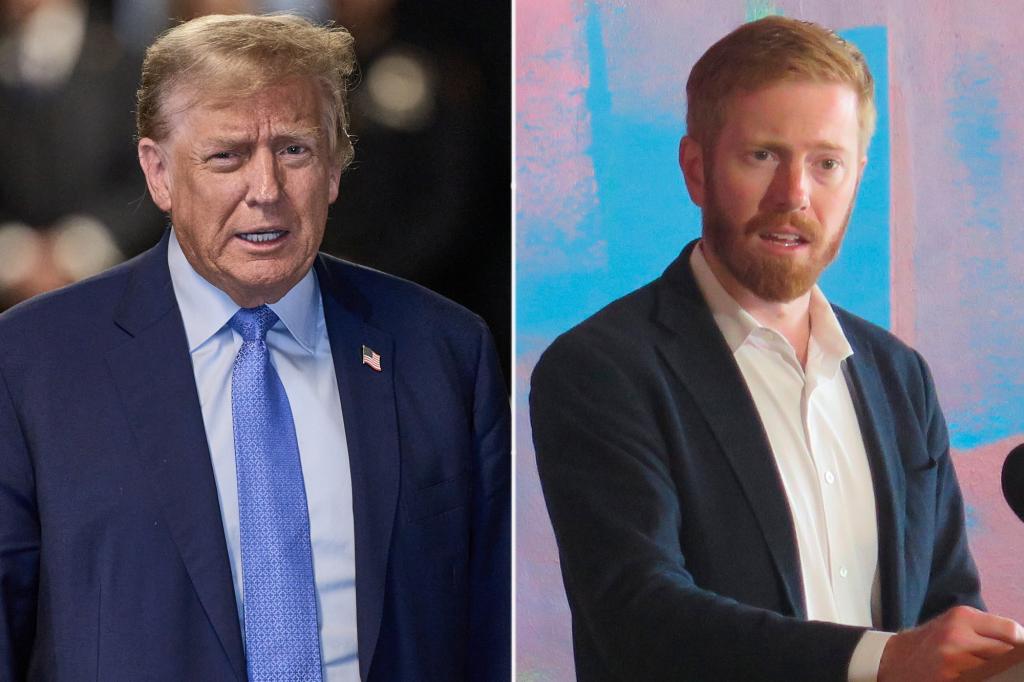Former Rep. Peter Meijer (R-Mich.) has announced that he is ending his bid to represent Michigan in the US Senate, a decision that was celebrated by former President Donald Trump, even though Meijer had voted to impeach him. In a statement, Meijer explained that despite initially believing he had a strong chance of winning in November, the fundamentals of the race had significantly changed since the start of his campaign, leading him to withdraw his name from the primary ballot in order to prevent a divisive primary that could distract from conservative victories in November.
Meijer was one of 10 House Republicans who voted to impeach Trump for his involvement in the January 6, 2021, riot at the US Capitol. Trump expressed his delight at Meijer’s decision to withdraw from the Senate race, congratulating “good Republicans” on social media. Trump suggested that Meijer’s political career was over after impeaching him, and he praised Mike Rogers as a “GREAT candidate” who he believes will easily win the Republican nomination in Michigan. Trump also noted that most of the Republicans who voted to impeach him are no longer in office, and he predicted the defeat of Rep. Dan Newhouse (R-Wash.) in an upcoming primary.
Mike Rogers, another former House lawmaker, is considered the favorite to secure the Republican nomination in Michigan’s Senate race. Rogers is backed by the National Republican Senatorial Committee and is leading in polls. On the Democratic side, Rep. Elissa Slotkin (D-Mich.) is polling ahead of her main challenger, actor Hill Harper. A recent poll showed Slotkin narrowly leading Rogers in a potential general election matchup. The race for the Michigan Senate seat is shaping up to be a crucial and competitive contest between both parties.
The impact of Meijer’s decision to end his Senate bid goes beyond Michigan, as it reflects the ongoing influence and power dynamics within the Republican Party. With Trump’s continued involvement in endorsing candidates and shaping the Republican landscape, the debate over his legacy and the future direction of the party remains a central theme in US politics. The division between Republicans who support Trump and those who have distanced themselves from him, like Meijer, highlights the ongoing challenges the party faces in achieving unity and electoral success.
The withdrawal of Meijer from the Senate race underscores the complex relationships and tensions within the Republican Party, particularly regarding loyalty to Trump and his influence on candidate selection and electoral outcomes. The ongoing debate over the significance of the January 6th Capitol riot and Trump’s role in the event continues to shape political dynamics and candidates’ decisions. As the race for the Michigan Senate seat progresses, the influence of Trump and the degree to which candidates align with or distance themselves from him will likely remain a central theme in shaping the future of the Republican Party and its electoral prospects.
In conclusion, Meijer’s decision to withdraw from the Michigan Senate race has significant implications for both the Republican Party and the broader political landscape in the US. The ongoing influence of Trump, the fallout from the January 6th Capitol riot, and the dynamic interplay between loyalty to the former president and the quest for electoral success are key factors to watch as the race in Michigan and other key battlegrounds unfold. The outcome of the Senate race in Michigan and the broader implications for the Republican Party will offer insights into the direction of conservative politics and the extent to which Trump’s legacy continues to shape the party’s future.


